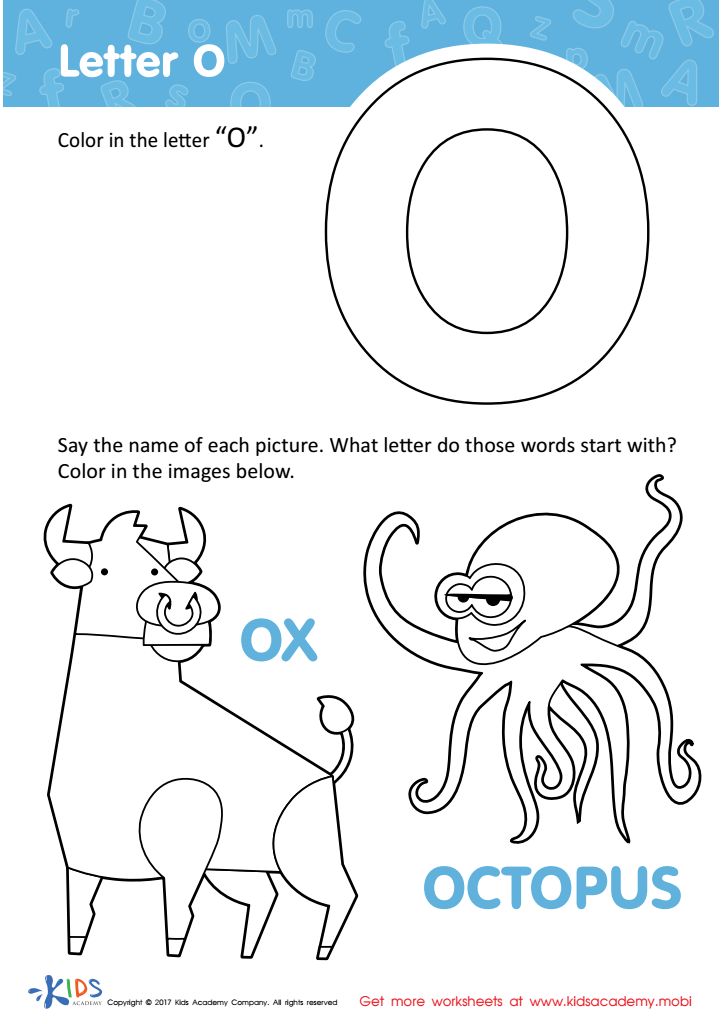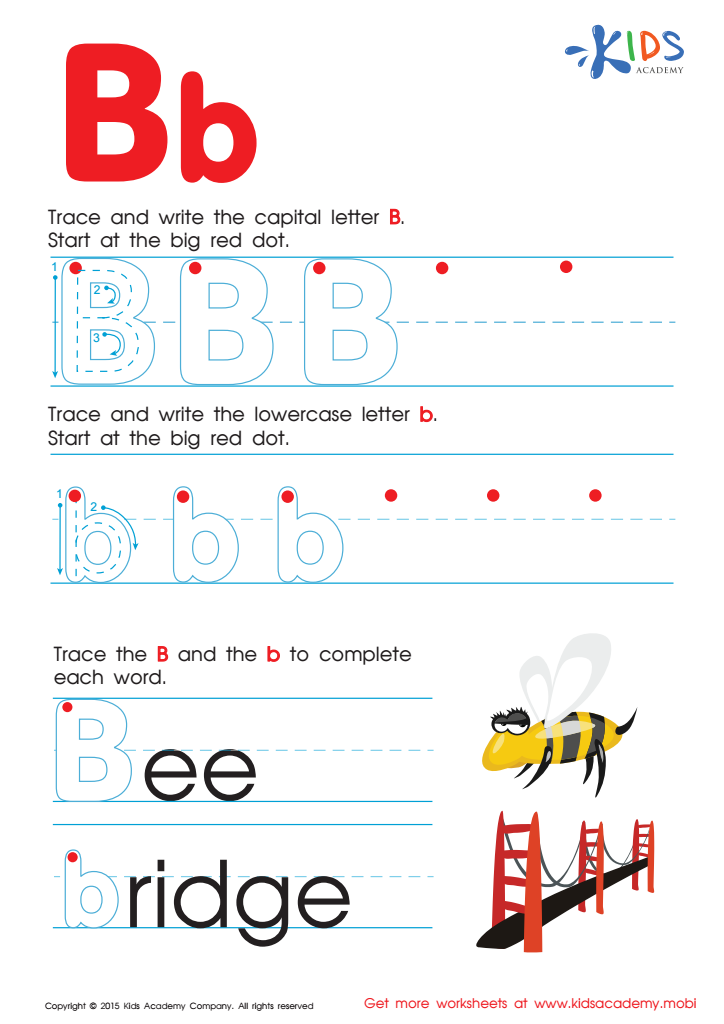Motor skills development Normal Alphabet Worksheets for Ages 5-6
3 filtered results
-
From - To
Welcome to our Motor Skills Development Normal Alphabet Worksheets designed specifically for children ages 5-6! These engaging worksheets blend fun and learning, helping young learners improve their fine motor skills while mastering the alphabet. Each worksheet features letters and activities that encourage tracing, coloring, and writing practice, enhancing hand-eye coordination and dexterity. With vibrant visuals and age-appropriate tasks, these resources make learning exciting and effective. Whether at home or in the classroom, our worksheets provide a solid foundation for your child’s literacy journey. Explore our collection today to support your child’s development and foster a love for learning!


Letter H Tracing Page


Letter O Coloring Sheet


Letter B Tracing Page
Motor skills development is crucial for children ages 5-6 as it lays the foundation for their overall growth and learning. At this age, children are refining both fine and gross motor skills, which are essential for everyday tasks. Fine motor skills involve small movements, like grasping crayons or using scissors, that are vital for writing and other academic activities. Meanwhile, gross motor skills encompass larger movements such as running, jumping, and balancing, which are important for physical health and coordination.
Parents and teachers should care about fostering these skills because they directly impact a child's ability to engage in classroom activities and recreational play. Children with strong motor skills often exhibit greater confidence and self-esteem, which can lead to better social interactions and academic performance. Moreover, engaging in activities that improve motor skills, such as arts and crafts or outdoor play, also supports cognitive development, enhances creativity, and encourages a love for physical activity.
By focusing on motor skills, parents and teachers can help children achieve necessary developmental milestones, promote healthy lifestyles, and prepare them for successful learning experiences as they progress through school. Supporting motor skills at this critical stage is an investment in a child's future well-being and success.
 Assign to My Students
Assign to My Students



















